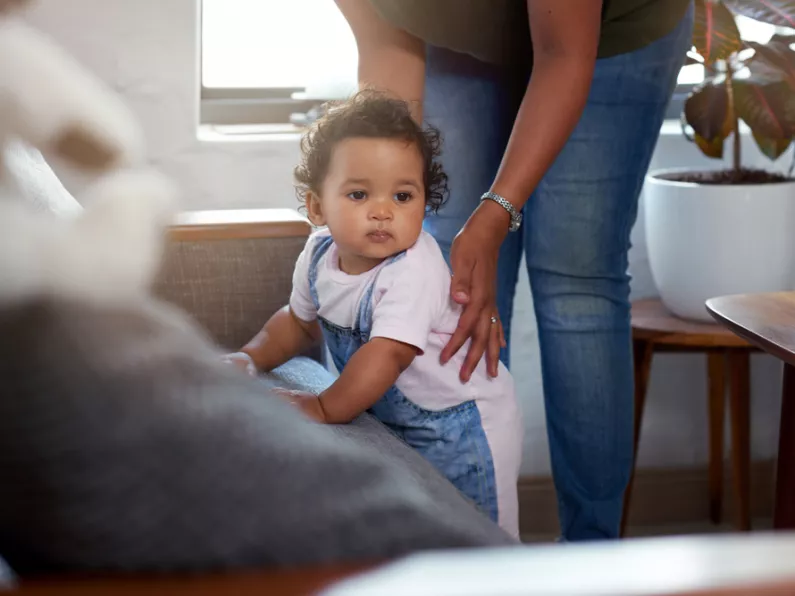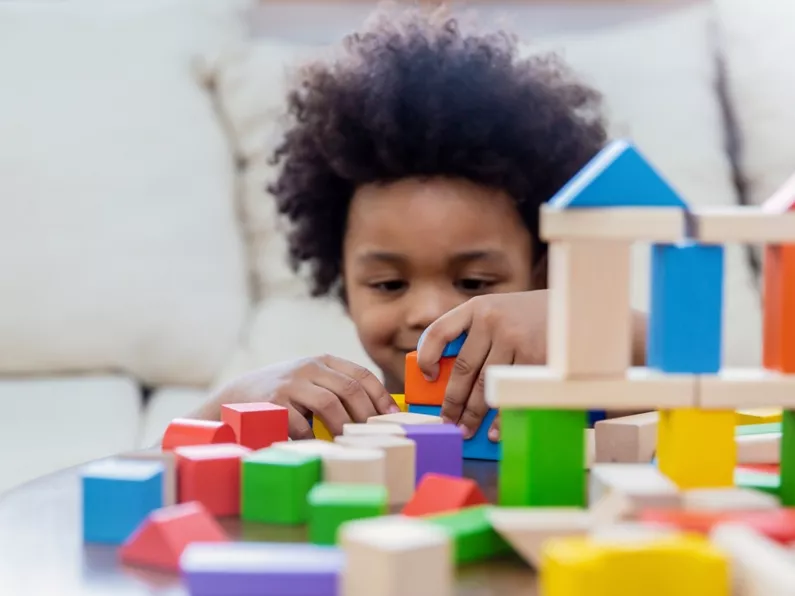If you thought having a long, hot shower in peace is a thing of the past now that you have kids, think again!
One canny mom has come up with a genius trick for showering with a clingy toddler watching your every move.
And this is how you do it.
This trick for showering with a clingy toddler is genius!
She reveals: “When you need to shower but you have a toddler at home........”, then shows herself closing the bathroom door but leaving it unlocked.
She then puts the toilet seat down to stop her little one from throwing things in it, and removes the toilet roll from its holder so they don’t unroll it all.
Next she sets up a series of distractions on the floor in front of the shower in the hopes that her child will be too entertained to make it as far as the shower.
But she doesn’t use any fancy toys, instead relying on an ice cube tray, a plastic lunchbox lid, some cups, a brush, and a spoon.
She then opens the drawers of the bathroom cabinet and selects some claw clips, a hairbrush, some cotton pads, and countless other objects that leave the floor completely covered.
A huge mess yes, but more than worth it for 15 minutes of peace to enjoy your shower.
This genius mom captioned the video: “If you know, you know."
Some moms commented that they leave their kid in a playpen with the TV on, or get them to sit outside the door colouring while they shower.
Parenting toddlers
The toddler stage can be a particularly difficult phase in the parenting journey, but we are here to help!
Parenting experts have shared a top tip on how to influence your toddler’s behaviour indirectly, explaining the benefits of "gossiping".
The secret is to talk about your child rather than to them, and let them overhear what you’re saying.
This is because once toddlers have reached the age of 15 to 18 months, they begin to associate whispering with people saying something extra important.
To ensure your toddler pays attention, it’s key to pretend you don’t want to be heard, and if you notice them paying attention, whisper quietly.
Example: your toddler is acting up in the supermarket, and you point to your partner and point out another child who is walking quietly beside their mother.
Similarly, commenting on bad behaviour will make your child less likely to engage in it, stopping misbehaviour before it starts.
Dr Harvey Karp explains the technique to Happiest Baby, saying it can also be used to reinforce good behaviour.
“Cup your hand alongside your mouth and, in a loud whisper, say to the birdies outside, 'Psst…hey, Mr. Birdie! Lauren ate all her peas! Yeah every one!'
"Then turn back to your child like nothing happened and give her a little understated praise.
“Even if your tot doesn’t understand all your words, your admiring tone of voice will make her feel valued!
“If your child leans in to listen, whisper more quietly, like you’re telling a juicy secret. For an older toddler, mumble some of the words so they can’t hear them all. This really makes it seem like you don’t want to be overheard. Later on, repeat the same compliment to someone else. Your child will be pleased and think, Wow, this must be true, because I’m hearing it a lot lately.”







